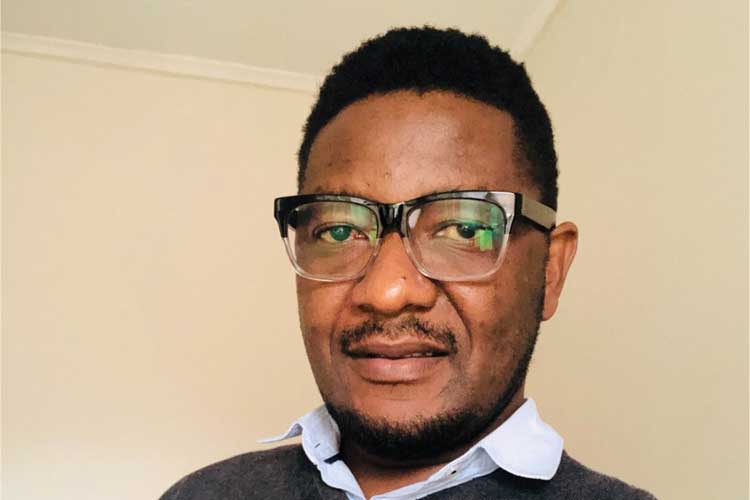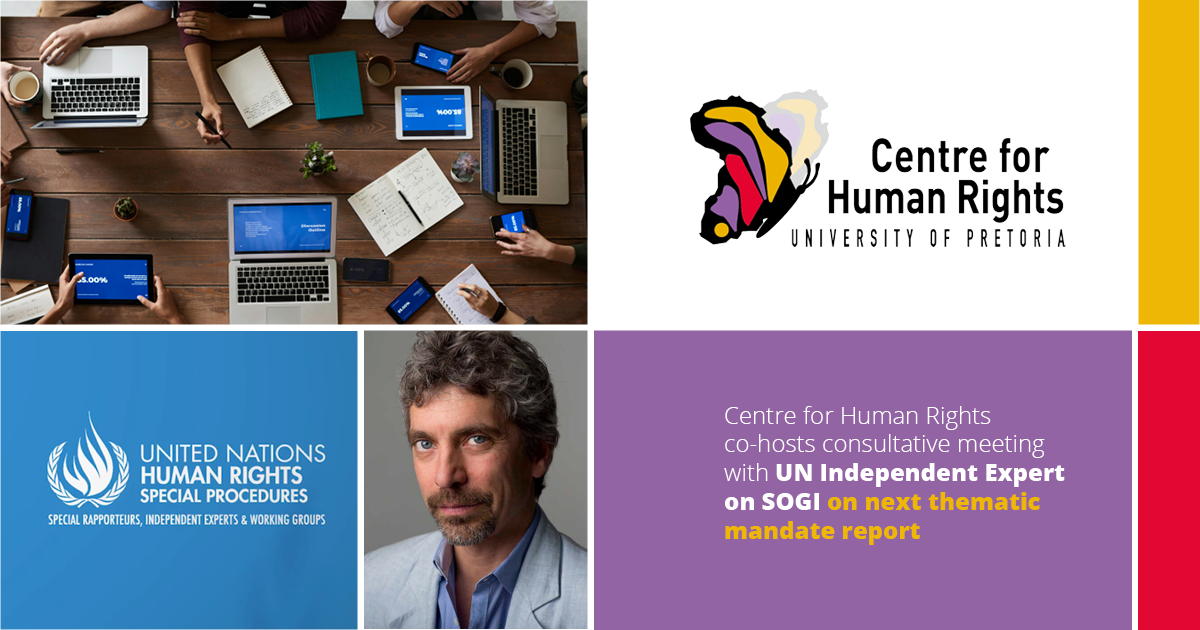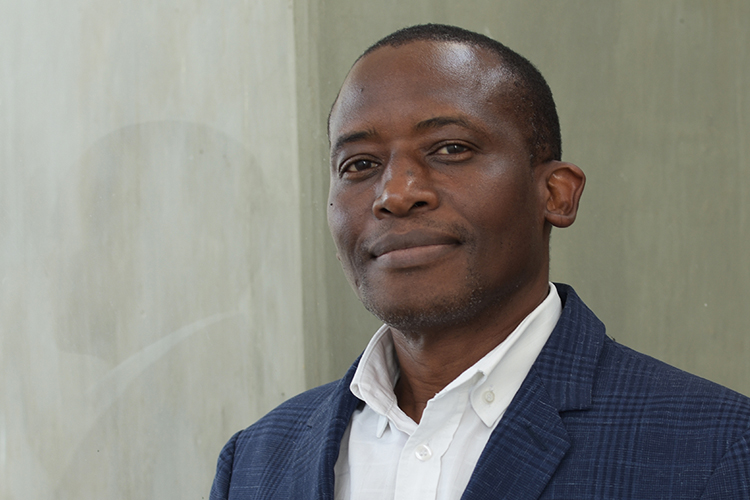On 26 February 2024, the United Nations Independent Expert on Protection Against Violence and Discrimination Based on Sexual Orientation and Gender Identity (“IE SOGI”), in collaboration with the Centre for Human Rights (Centre), Faculty of Law, University of Pretoria, brought together global experts, academics, and activists in an online consultation for the upcoming report that will focus on the vital issues of freedom of expression, freedom of peaceful assembly, and freedom of association concerning the protection against violence and discrimination based on sexual orientation and gender identity (SOGI). The report will be the first from the newly appointed Independent Expert on SOGI Graeme Reid from South Africa, according to the office’s mandate to advance protection against violence and discrimination based on sexual orientation and gender identity.
The purpose of the consultative meeting was to serve as a platform for robust dialogue, sharing of insights, and challenges being faced in advancing the protection of LGBTIQ+ persons from violence rights worldwide. The consultative meeting was attended by experts from countries across Africa, Asia, Europe, and North and South America. The views shared by experts during the meeting will be incorporated into the Independent Expert’s thematic report due for submission to the United Nations General Assembly this June.
The discussions underscored the pressing challenges faced by LGBTQ+ communities across the world, including pervasive stigma, targeted violence, direct and indirect legal barriers as well as the ‘chilling effect’ of laws and practices targeting the LGBTIQ+ community. The right to freedom of association was underpinned by discussions on increasingly hostile laws restricting the registration of LGBTIQ+ organisations. While LGBTIQ+ organisations in Africa have seen success in countries such as Botswana and Kenya, countries such as Ghana are following Uganda in restricting freedoms for LGBTIQ+ associations. The discussion on the right to freedom of expression and peaceful assembly underscored the fact that LGBTIQ+ groups are being silenced and are unable to assemble due to restrictive laws and hostile political environments. The experts highlighted several country contexts examples and recommendations on how these laws can be challenged.
Many similarities were drawn between the experiences of LGBTIQ+ groups globally, including the threat of the Anti-Rights movement in advocating for hostile law reforms and policies to restrict the freedoms of LGBTIQ+ organisations and persons. This reflects a growing challenge for organisations to secure funding for advocacy to sensitise communities and strengthen their capacities.
The Independent Expert will present the thematic report to the 56th session of the Human Rights Council which will examine the impact of laws and policies that unlawfully restrict rights to freedom of expression, association, and peaceful assembly based on SOGI, with a particular focus on civil society groups and individuals advocating for the enjoyment of those human rights. The report will provide an overview of restrictive laws, the threats they pose to groups advocating for the protection of LGBTIQ+ persons, and the impact of these restrictions on greater society in order to provide remedial recommendations to States and other stakeholders. The report also seeks to emphasise the role of civil society groups in strengthening democracy and promoting awareness of human rights abuses and violations that may otherwise go unseen.
The Centre wishes to thank the Independent Expert and his team for the collaboration and looks forward to a continued working relationship with the mandate. The Report will be posted on the Centre’s website after it is made available in July 2024.
The previous report of the IE SOGI on The Impact of Colonialism in Violence and Discrimination based on SOGI (Sexual Orientation and Gender Identity) can be viewed here.
For more information, please contact:

Tel: +27 (0) 12 420 3151
landilani.banda@up.ac.za



